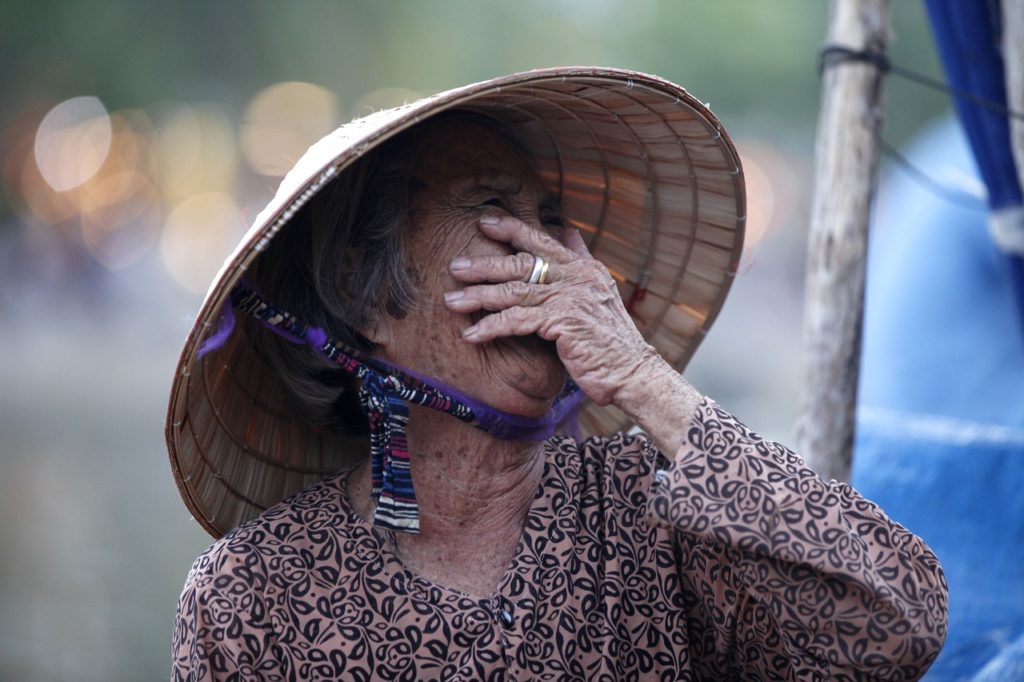After the fall of Saigon and the end of the Vietnam War in 1975, many Vietnamese people fled their war-torn country for the United States in search for a better life. Thousands of Vietnamese adults, children, and families crammed onto boats and traveled to the United States leaving their belongings, loved ones, and former lives behind. These people lost everything except for their memories of the fall of Saigon, the horrors of communist re-education camps, and the atrocities of the Vietnam War. For many Vietnamese individuals, these memories may transpire psychological trauma similar to the many Vietnam War-era U.S. veterans who suffer from Post-Traumatic Stress Disorder.
PTSD is a psychiatric disorder that can occur after a person experiences or observes a traumatic event such as a natural disaster, accident, terrorist act, violent personal assaults or war. PTSD symptoms may vary depending on the severity of the disorder. In some cases, PTSD may also lead to depression. One study found that among people with PTSD, between 48% to 55% have also experienced depression. PTSD and psychological trauma associated with the Vietnam War contribute to the high rates of depression in the Vietnamese American population, which was estimated to be as high as 50%. Individuals with depression may also be diagnosed with PTSD later in life. As many as 70% of Southeast Asian refugees receiving mental health care were diagnosed with PTSD. It is evident that the connection between PTSD and depression can be seen in Vietnamese Americans who were affected by the traumas of the Vietnam war. More robust studies are needed to examine the rates of PTSD among Vietnamese American older adults. However, mental health issues can be seen as a weakness or a curse in the Vietnamese American community, deterring many of those affected by depression or PTSD from receiving treatment. In addition, many Vietnamese Americans are of limited English proficiency, making it difficult to explain their mental health issues to a physician who does not speak Vietnamese.

Although there are not many U.S.-based studies examining the long-term effects of PTSD, both Australia and Norway have published studies documenting the prevalence of PTSD among Vietnamese refugees. In Australia, one study found that among Vietnamese refugees resettled in Australia for 11 years, 50% of individuals have been diagnosed with PTSD. This study emphasizes the long-term effect of psychological trauma and PTSD on mental health. Without additional research, the long-term effects of PTSD and war trauma may never fully be understood, putting thousands of Vietnamese refugees in America at risk.
The prevalence of PTSD and depression among Vietnamese American older adults may also have damning effects on future generations. A person experiencing depression, mistrust, fear, and other symptoms of PTSD may pass their disorder to subsequent generations. This phenomenon is referred to as intergenerational transfer/trauma. Intergenerational transfer could happen when a father experiencing PTSD passes his disorder to his children. Vietnamese Americans diagnosed with PTSD may have vivid memories, flashbacks, and nightmares of the atrocities of the Vietnam war. In some cases, PTSD may cause individuals to relive these traumatic events. In family households, these symptoms may influence a child’s belief system and/or behavior. Intergenerational trauma can already be observed in many younger generations Vietnamese Americans.
In an article from the website Voice of OC, College student Sandy Ninh said she wishes Vietnamese parents and elders would be more open about past hardships and their lingering effects. Sandy was surprised to learn that on a vacation in Venice, Italy, her aunt was unable to sleep due to anxieties about proximity to the water. The aunt had watched her sister drown during their escape from Vietnam by boat.
Unfortunately, Sandy’s story is a common story among Vietnamese Americans dealing with intergenerational trauma. Without resolving stigma and language barriers, many Vietnamese Americans will continue to deal with PTSD unknowingly, putting their families at risk.

What Can You Do
It is vital to resolve stigma around PTSD and depression within the Vietnamese American community. Currently, many people are deterred from seeking help or medical attention due to stigma and discrimination. In the Vietnamese culture, PTSD and depression are associated with being “crazy” rather than a medical condition. In addition, mental health issues are considered as a sign of weakness and a curse. If you know a family member or friend dealing with PTSD, reach out to them and let them know it is okay. Encourage your loved ones to seek help and remind them that they are not “crazy.” These small gestures may have the impact to change your loved one’s outlook on PTSD especially if they are feeling alone in their battle with the disorder.
Along with resolving stigma, it is important that we continue to push for culturally and linguistically appropriate mental health services. A bilingual staff would enable many Vietnamese Americans to seek help and explain their issues rather than feeling alone about their mental health. Furthermore, many Vietnamese Americans would understand their condition and the importance of receiving mental health care.
Although we are only beginning to resolve the issues of PTSD in the Vietnamese American community, we must also celebrate their journey. Being affected by war, re-education camps, immigration, and resettlement, Vietnamese people continue to thrive and remain resilient. Amidst Minority Mental Health Month, I am certain that the Vietnamese American community will continue their legacy and persevere through these issues.
The opinions expressed in this article are those of the author and do not necessarily reflect those of the Diverse Elders Coalition.

